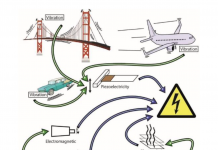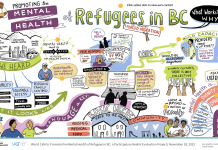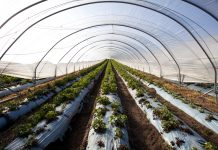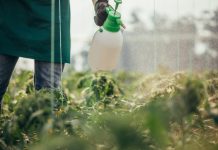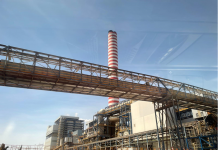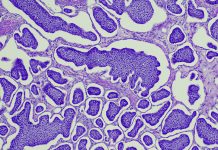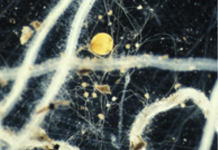Open Access Government produces compelling and informative news, publications, eBooks, and academic research articles for the public and private sector looking at health, diseases & conditions, workplace, research & innovation, digital transformation, government policy, environment, agriculture, energy, transport and more.
Home 2024
Archives
Toward human systems integration maturity
FlexTech Chair’s founder, Professor Guy André Boy, briefly traces the development of human systems integration.
Investigating lung cancer using genetically engineered mouse models (GEMMS)
Daniel J. Murphy, Professor of Lung Cancer & Mesothelioma at the University of Glasgow, School of Cancer Sciences, discusses opportunities for improving cancer research and care through the use of genetically engineered mouse models.
The opioid crisis in canada – Governmental responses and strategies
Norm Buckley, Scientific Director at the Michael G. DeGroote Institute for Pain Research & Care, and Jason Busse, Director of the Michael G DeGroote National Pain Centre at McMaster University, discuss the complexities of chronic pain management and addressing the opioid crisis.
Energy harvesting for unlimited lifetime systems
The Internet of Things (IoT) and services, wireless sensor networks (WSNs), trillions of sensors, Industry 4.0, and digitalisation – all these are hungry for data, and their common challenge is energy.
Why greener pharmaceutical manufacturing is vital for the industry and our health
Determined to tackle the carbon footprint of medicine, CPI’s Medicines Manufacturing Innovation Centre is addressing key sustainability issues in pharmaceutical manufacturing.
EURO-CORDEX: A community effort provides the basis for regional climate adaptation in Europe
Climate change is a worldwide threat to humanity and to human activities. Especially in the densely populated continent of Europe, targeted adaptation to the man-made changes in climate is necessary.
Upscaling integrated mental health services and systems for people of forced migration
How can realist impact evaluation be used to upscale the integration of mental health programs for people of forced migration? Nancy Clark, an Associate Professor from the University of Victoria, investigates.
A transdisciplinary approach to literacy research, practice, and policy
Patriann Smith, Associate Professor at the University of South Florida’s Department of Teaching and Learning, discusses transdisciplinarity and how it could inform approaches to literacy research, practice, and policy.
The future of sustainable electrified catalyst recycling
Xochitl Dominguez Benetton, Senior Scientist & Project Coordinator at the Flemish Institute for Technological Research (VITO) and the FIREFLY consortium, explore competitiveness and sovereignty through sustainable electrified catalyst recycling.
The pet primate trade in the U.S.
Dr Melissa Seaboch, Professor and Department Chair at Salt Lake Community College, discusses the challenges regarding the pet primate trade in the U.S., including its impact on animal welfare and owners and the complexity of regulations.
Environmental health implications of plastic use in agriculture
Donald A. Bruun and Pamela J. Lein from the University of California, Davis in the U.S., highlight the environmental health implications of plastic use in agriculture.
Purple bacteria and their less known applications
Jungwoo Lee, High-School Student, and Arpita Bose, Associate Professor at Washington University in St. Louis, guide us through purple bacteria and their less-known applications, including wastewater treatment and biofertilization.
Governing a fair energy transition in coal-dependant areas
Prof Yiannis Bakouros, provides a comprehensive exploration of promoting inclusive regional governance for a fair energy transition in coal-dependent areas.
Are nanotextures enough to kill cancer cells?
Nanotextures on nanoparticles and implants to kill cancer cells in a more targeted manner may just be the key to tackling resistance to traditional cancer drugs.
Electric-field nanobubbles: Re-engineering water treatment
Niall J. English, from the University College Dublin, School of Chemical and Bioprocess Engineering, discusses electric-field generated nanobubbles, including re-engineering water treatment – and beyond.
Independent research experiences in sustainable chemistry
The Research Experiences for Undergraduates (REU) programme in the Department of Chemistry at Michigan State University was created to inform students majoring in chemistry, biochemistry and chemical engineering about key societal sustainability challenges and to provide graduate-level independent research experiences that address aspects of these challenges.
Meal replacements: An educational tool for weight reduction in patients with diabetes in rural...
Richard J Santen, Emeritus Professor of Medicine at the University of Virginia, discusses how meal replacements can aid successful weight loss for individuals with diabetes living in rural, underserved communities.
Enhance expertise in European research infrastructures
Marialuisa Lavitrano, Full Professor at University Milano Bicocca, explores the need for a European School for the Management of Research Infrastructure to enhance expertise in European research infrastructure management.
Delivering the best policy for cancer patients: Follow the science – follow the data
Mark Lawler, from the Patrick G Johnston Centre for Cancer Research at Queen’s University Belfast, reflects on key milestones in cancer policy initiatives and how data support innovative cancer research, optimal care and equity of access.
Soil health: A role for arbuscular mycorrhizas
Lynette Abbott from The University of Western Australia, focuses on soil health again, this time examining the role of arbuscular mycorrhizas.




